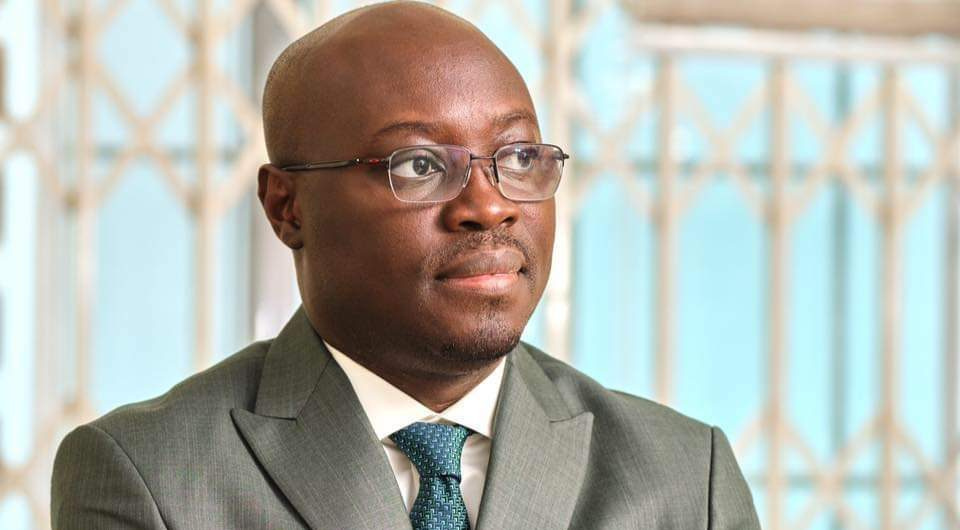
‘.Ato Forson Trial: Ambulance Contract Tailored to Government Specifications’ In the ongoing trial involving the former Deputy Finance Minister, Cassiel Ato Forson, revelations have emerged that the government specifically tailored ambulance contract specifications to suit their preferences. According to evidence presented in court, the government’s ambulance procurement specifications were highly detailed and specific, with clear preferences for certain features and equipment. These tailored requirements allegedly favored specific vendors and limited competition in the bidding process. Expert witnesses have testified that the customized specifications were not based on objective need or medical best practices but rather designed to meet the government’s particular interests. This, they argue, created a situation where only suppliers who could meet these specific requirements could qualify for the contract, potentially restricting competition and inflating costs. Furthermore, the prosecution has alleged that the former minister and other officials involved in the procurement process had prior knowledge of these tailored specifications and may have influenced the bidding process to favor certain vendors. The defense, however, has countered these allegations, arguing that the specifications were developed in collaboration with medical professionals and based on a thorough assessment of the country’s healthcare needs. They maintain that the government’s pursuit of specific features was justified to ensure the provision of high-quality ambulance services. The ongoing trial has shed light on the potential implications of tailoring procurement specifications to government preferences. Concerns have been raised about the impact on competition, transparency, and the ultimate cost of public contracts. As the trial continues, the evidence presented will further inform the public and the court about the extent to which the ambulance contract specifications were tailored to meet the government’s needs or to favor specific interests. The outcome of the trial is expected to have significant implications for future government procurement practices and the accountability of public officials involved in such processes.Richard Jakpa Defends Ambulance ContractRichard Jakpa Defends Ambulance Contract Richard Jakpa, a businessman involved in the ongoing ambulance trial, has testified that the ambulance contract was specifically tailored to meet government specifications. He attributed this to the fact that the contract was drafted by the government, not by Big Sea Trading LLC, the ambulance supplier. During cross-examination by Attorney General Godfred Dame Yeboah, Jakpa asserted that the contract had undergone thorough review and approval by the then Office of the Attorney General before the government proceeded with it. However, Yeboah contested this claim, presenting documents that allegedly showed neither Cabinet nor Parliament had granted approval to Big Sea Trading LLC. Jakpa argued that any issues with the contract not meeting specifications should not be attributed to Big Sea but rather to the Attorney General’s office, which was responsible for drafting it. He emphasized that the contract had received all necessary approvals, including those from Cabinet, Parliament, and the Public Procurement Authority. Despite these assertions, the Attorney General alleged that €2.3 million, representing profit, was unlawfully paid to Jakpa and Big Sea under the contract. Jakpa refuted this claim, stating that no payment was made to Big Sea on November 26, 2014, as alleged. Furthermore, Jakpa accused the prosecution of misinterpreting the technical aspects of the contract. He clarified that a letter from former Health Minister Sherry Ayittey suspending ambulance production was followed by a letter from Big Sea informing the government of potential financial loss. Contrary to claims by the prosecution, Jakpa insisted that the Ministry of Finance authorized the establishment of a Letter of Credit through a legal opinion provided by the Attorney General.
A forensic auditor at the Auditor-General’s Department, Frederick Akatsi, has testified before the Accra High Court that the procurement process for the supply of 200 ambulances was tailored to favour a particular supplier. Mr. Akatsi, who was under cross-examination by lawyers for former Deputy Finance Minister, Cassiel Ato Forson, said the original invitation for bids was for 200 ambulances, but it was later revised to 50 ambulances at a cost of 2.4 million euros for each ambulance. He explained that the price of each ambulance was inflated by about 300,000 euros, resulting in a total overpayment of 60 million euros. Mr. Akatsi further testified that the specifications of the ambulances were tailored to fit the capabilities of only one supplier, and that the evaluation committee did not follow due process in awarding the contract. The witness also told the court that there were significant variations between the specifications in the invitation for bids and the final contract that was signed. The former Deputy Finance Minister and two others are facing charges of causing financial loss to the state in the procurement of the ambulances. The trial continues.
‘.Ato Forson Trial: Ambulance Contract Tailored to Government Specifications’
Related Posts
Kate Hudson Recreated Her Iconic How to Lose a Guy in 10 Days Scene During the World Series, and I Can’t Ignore the Fans’ Reaction to It
Kate Hudson isn’t just an award-winning one actress with famous parents; she is also a huge baseball fan. So it’s no surprise that she attended this year’s World Series to…
Software Catalog Unveils Array of Cutting-Edge Solutions for Enterprise Transformation
Software Catalog Unveils Array of Cutting-Edge Solutions for Enterprise TransformationSoftware Catalog Unveils Array of Cutting-Edge Solutions for Enterprise Transformation Technology is rapidly reshaping the business landscape, making it imperative for…